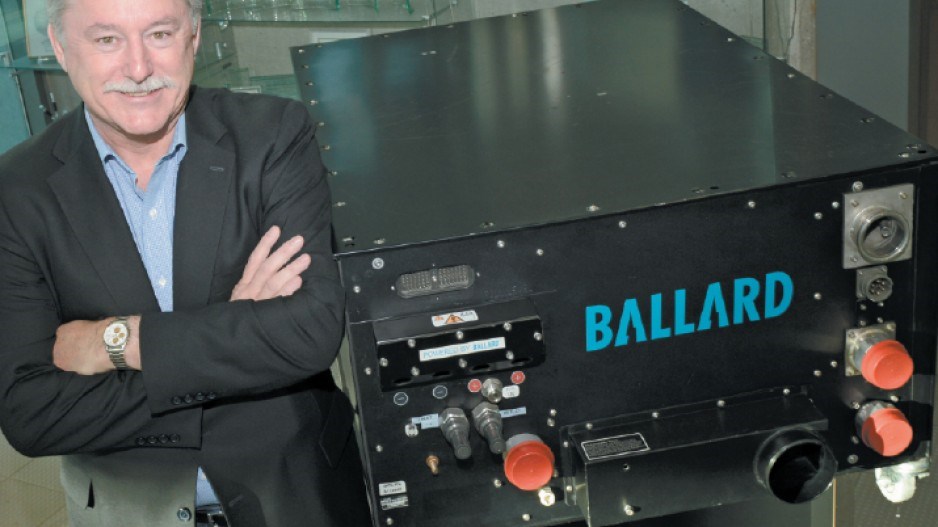Twenty hydrogen fuel cell buses in Whistler that produced zero emissions will be decommissioned next spring and may be converted to hybrid diesel-electric engines.
The buses are simply too costly to continue running, according to BC Transit, due in part to the high cost of hydrogen fuel, which is currently trucked to Whistler from Quebec.
Critics say the decision not to extend a five-year demonstration project proves the experiment was a failure.
But Paul Cass, vice-president of operations for Ballard Power Systems (TSX:BLD), which developed the fuel cell modules that power the 20 buses, said the company never assumed the five-year demonstration project would be extended beyond March 2014.
"Ballard was never banking on that – it was always a five-year program," he said.
And far from being a bust, the project helped commercialize a Canadian technology that is now being sold around the world, according to Ballard, the B.C. government and the Canadian Hydrogen and Fuel Cell Association (CHFCA).
"B.C. has built maybe 1,000 jobs and $100 million-plus a year industry around our willingness to be innovative," said CHFCA president Eric Denhoff.
He counts among those jobs Ballard's 600 employees, the 50 employed at the new $50 million fuel cell production plant that Mercedes-Benz opened in Burnaby last year, and the Automotive Fuel Cell Cooperation Corp., which is jointly owned by Daimler and Ford Motor Co. (NYSE:F).
Since the Whistler buses went into operation in 2009, Ballard has sold 26 of its FCvelocity-HD6 fuel cell modules for buses in several countries.
Five more buses powered by the FCvelocity-HD6 will be commissioned soon in Italy, and next year 10 more will go into operation in Aberdeen, Scotland, five in Belgium and two in Cologne, Germany.
Ballard has also signed a licensing deal with a Chinese company – Azure Hydrogen – that will use Ballard technology to assemble its own fuel cell modules for hydrogen buses, and Ballard expects to capitalize on $21 million just announced by the EU Hydrogen Fuel Cell Joint Undertaking for up to 24 fuel cell buses and stationary fuel cell generators.
The $89 million Whistler project was intended to demonstrate that an entire fleet of hydrogen fuel cell-powered buses could operate in challenging terrain and weather. Over the course of the five-year project, Cass said Ballard has been able to extend the life of the fuel cells and reduce their costs by 50%.
"Our own experience is that the buses have performed very well," Cass said. "We have definitely accomplished what we set out to accomplish."
The buses do not compare with diesel, however, when it comes to operating costs. They are about three times more expensive to operate. Diesel buses, on the other hand, can't compare with hydrogen on the environmental side. The only emission hydrogen fuel cells produce is water.
Mothballed bus program could pull plug on local hydrogen plant plan
While the B.C. government's decision not to extend funding for the Whistler hydrogen bus fleet will have no negative impact on Ballard, it may put into question an $18 million hydrogen refining plant that is already two years behind schedule.
A company called HTEC planned to use waste hydrogen from two chemical plants in North Vancouver and refine it for use in fuel cells.
"If the bus program goes forward, there will definitely be a plant in Vancouver," said HTEC president Colin Armstrong. "If the bus program doesn't go forward, the drivers change a bit."
In 2011, B.C. announced it would contribute $870,000 towards the HTEC plant. Sustainable Development Technology Canada (SDTC) also committed $4 million to the project. Chemical giant Air Liquide is a partner in the project and would have an off-take agreement to buy and sell the hydrogen.
Armstrong said a third of the hydrogen produced would have been for the Whistler bus fleet, which currently gets its hydrogen from an Air Liquide plant in Quebec.
When the B.C. government announced its commitment to the project in 2011, Premier Christy Clark promised the plant would be built within two years. But the project has experienced financing problems and is still at least two years away from being built.
"The holdup is getting an equity partner to put in the money needed," Armstrong said.
And, without a major local buyer for hydrogen, that could get even harder now, although Armstrong said there might be a growing demand for fuel cell-quality hydrogen in California.
"It definitely makes it a lot more difficult. We still see value in pursuing it, particularly with growing demand for it in California."




